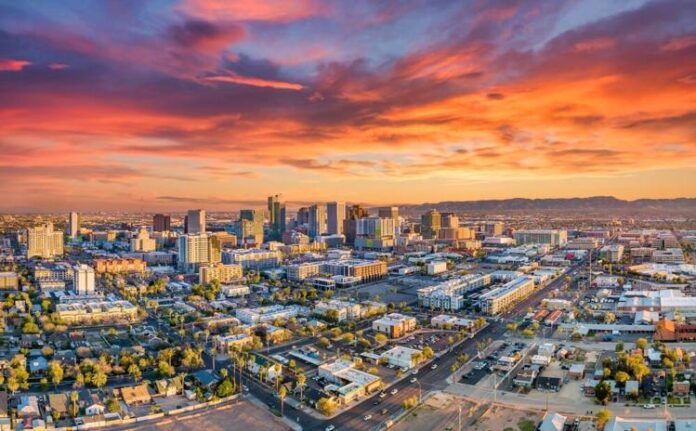A proposal from the Environmental Protection Agency could put Arizona and many more regions across the United States in a bureaucratic fiasco, local leaders say.
The agency is expected to reach a decision in August on whether or not to decrease the particulate matter standard as part of the National Ambient Air Quality Standards, which could make it harder for cities like Phoenix to meet their requirements.
Particulate matter is defined as a “mixture of solid particles and liquid droplets found in the air,” according to the agency.
Specifically, the EPA wants to go from 12 micrograms per cubic meter down to a range between 9 and 10 micrograms per cubic meter. By lowering the number, the agency makes these “nonattainment” areas put together action plans in order to lower the number of pollutants, which could lead to more stringent actions on emissions at the business and consumer levels.
“Everyone supports clean air. Arizona has demonstrated, however, that innovation and ingenuity by manufacturers and the private sector are far more efficient at cleaning the environment than heavy-handed federal regulation,” Danny Seiden, President and CEO of the Arizona Chamber of Commerce and Industry, told The Center Square in a statement.
“The best example: despite hosting some of the nation’s fastest population and economic growth over the past three decades, Arizona’s overall air quality has actually improved. We fear the EPA’s proposal to more stringently regulate fine particulates known as PM2.5 will create dubious public health and environmental benefit, but will cost jobs and hurt employers at a time they can least afford it. This EPA plan needs to return to the drawing board,” he added.
There is also concern about what it could mean for the agriculture sector, as there are concerns that more regulations could lead to high costs in the thin-margin industry.
“Nobody has a more vested interest in clean air, soil, and water than our farmers and ranchers. Our lives and livelihoods depend on it. That’s why Arizona’s agricultural industry is constantly innovating to grow the food we need in a way that is cleaner, more efficient, and requires less water,” Arizona Farm Bureau CEO Philip Bashaw told The Center Square in a statement.
According to the Arizona Department of Environmental Quality, there are 16 nonattainment areas in the state across seven counties, which includes cities such as Phoenix and Yuma. By contrast, eight counties have zero nonattainment areas as of October 2022, according to the department.
Republished with the permission of The Center Square.














